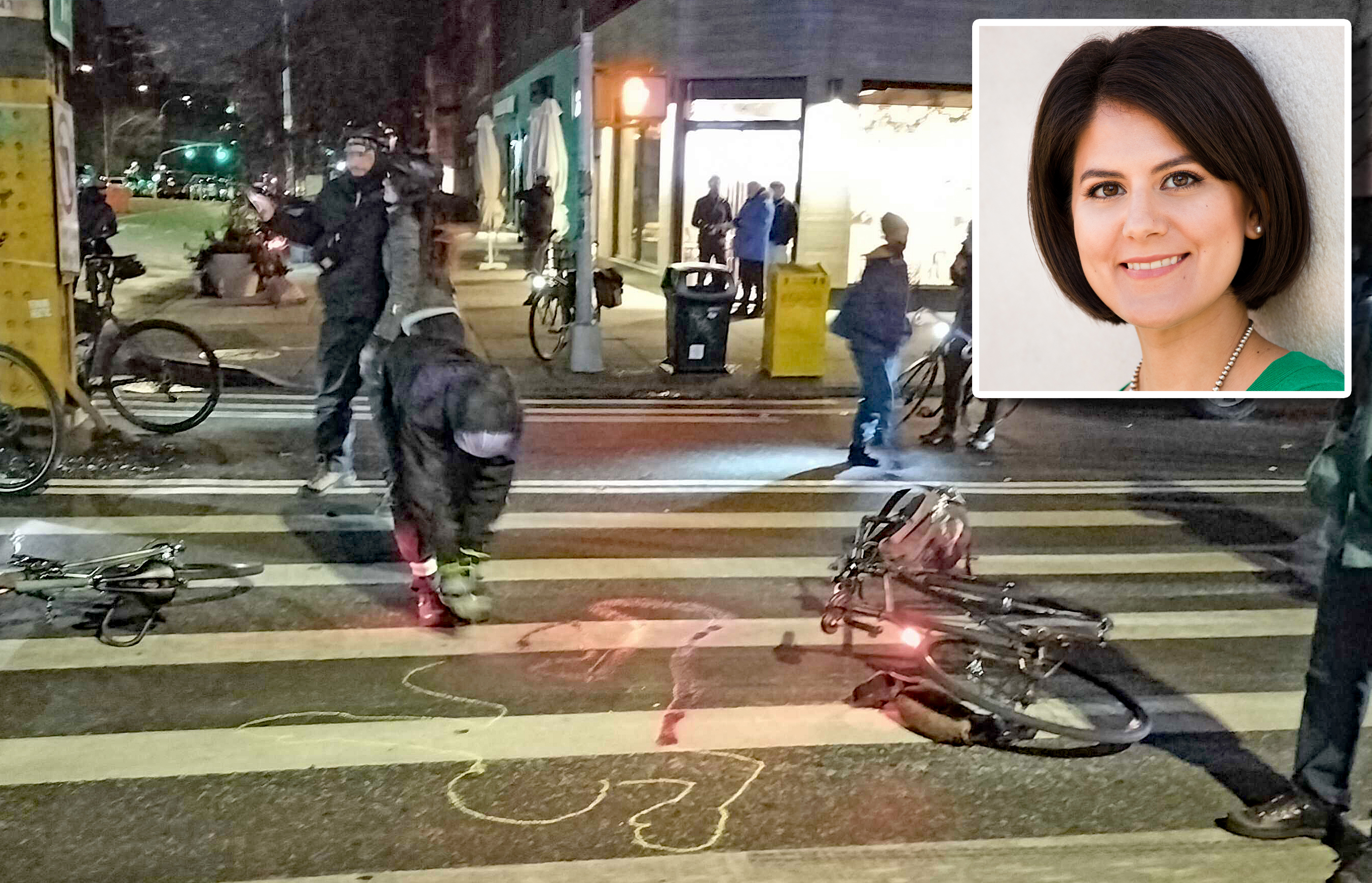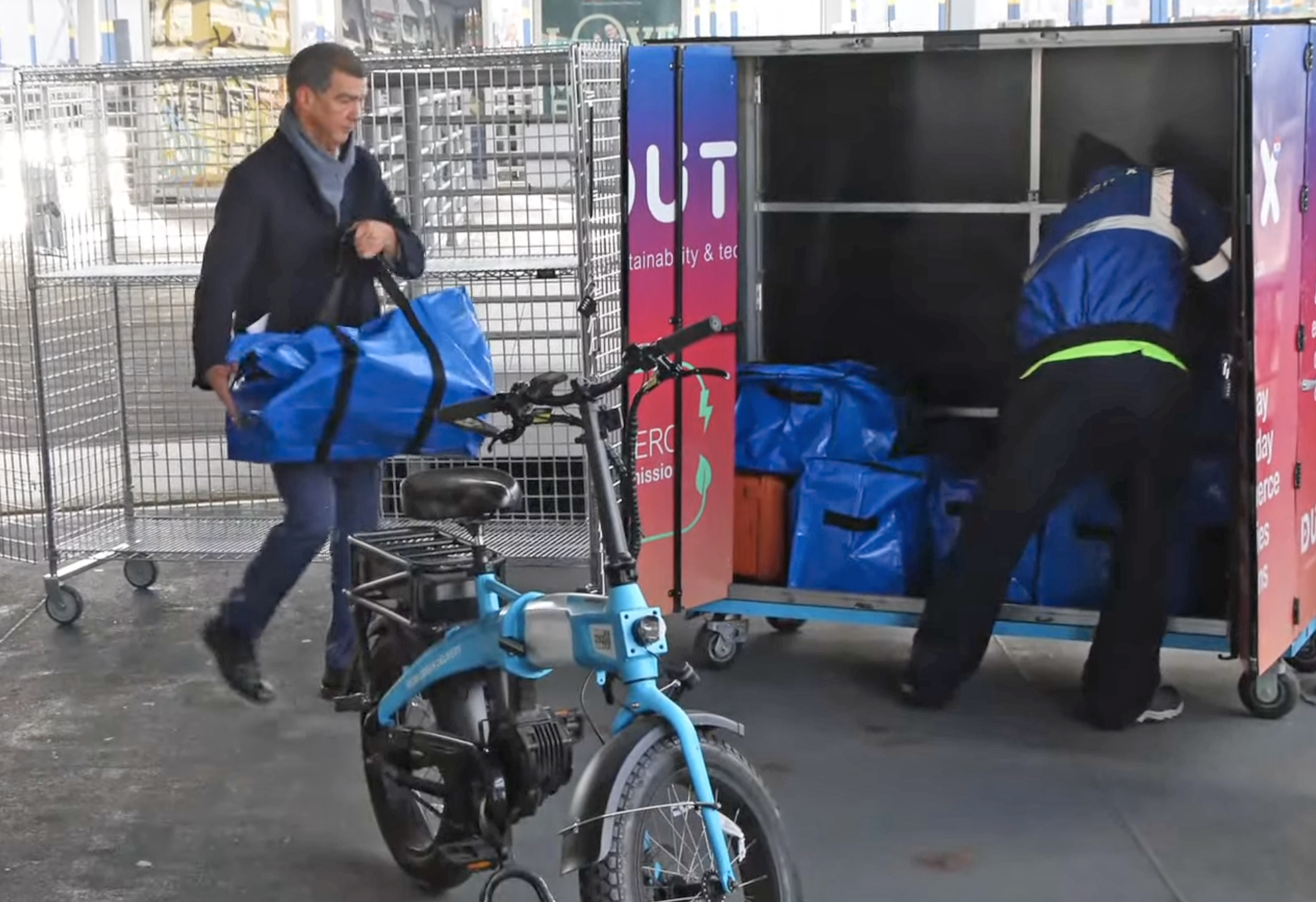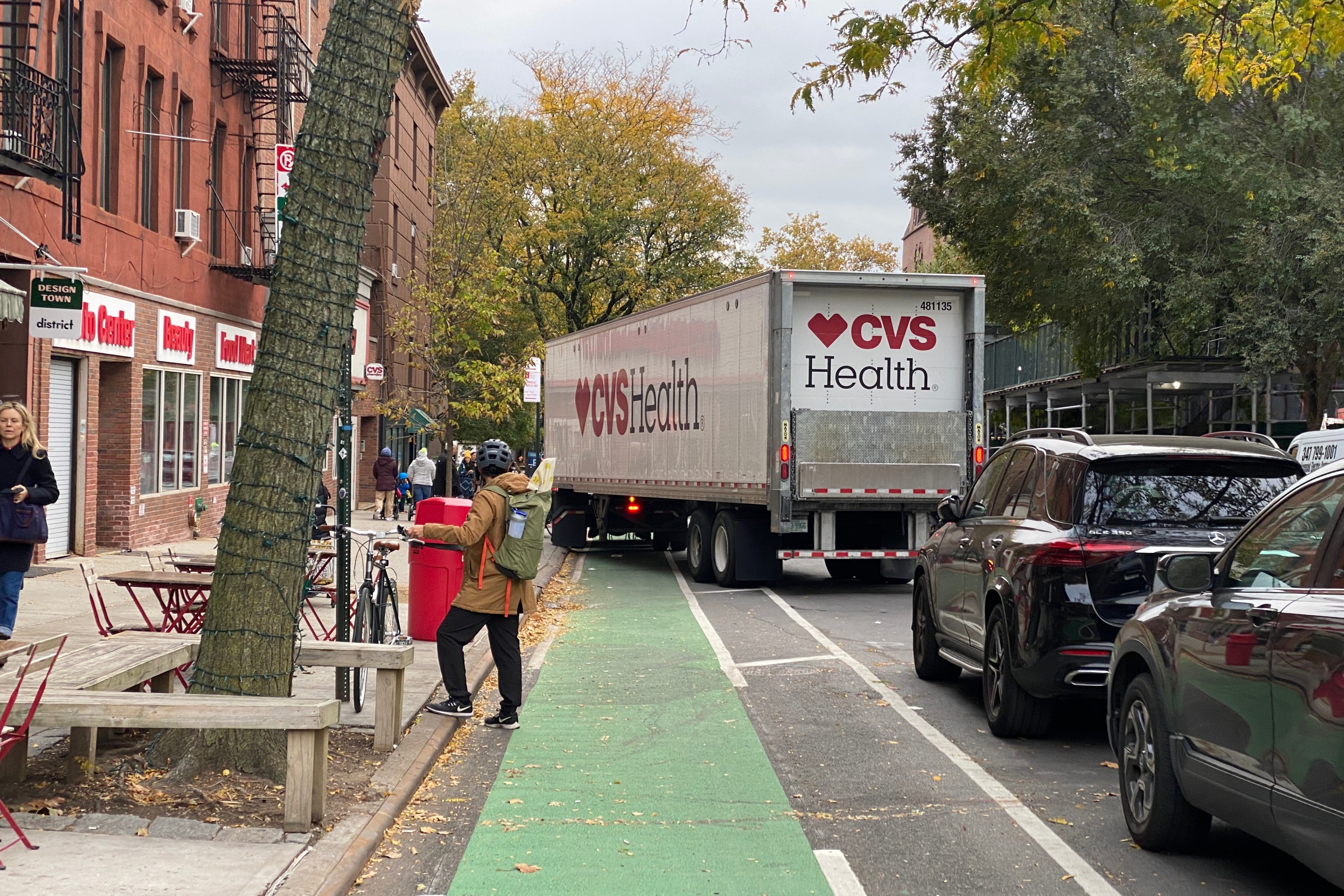The ballroom of the Waldorf Astoria is packed right now for the RPA's 2009 Regional Assembly, where Richard Ravitch just accepted a lifetime achievement honor. Many luminaries from the worlds of transportation, planning, and politics are here, and I've got a few minutes to post some interesting exchanges from earlier in the day, so here goes.
At a morning workshop about the challenges to funding transit during an economic downturn, Ravitch spoke about the current impasse in Albany that's putting New York's transit system at risk:
The difficulty, politically, in my judgment, is very obvious. There are very few short-term dividends, for people who run for office, in long-term investments. They don’t get the benefit out of it. It doesn’t have the same electricity to it as keeping the fare low. The benefits may not be realized until future generations. That is a political problem.
People are going to have to bite the bullet, in terms of usage charges and various taxes that will generate the revenue streams we need in order to build.
Congressman Jerrold Nadler, who served in the state legislature when the MTA was emerging from the financial catastrophe of the 1970s, added this perspective:
The 1970s crisis allowed us in the 80s to put new revenue streams in place and implement the original MTA capital plan. We had the ability to do these things because people remembered the bad times. But then you start to get complacent.
The politics in the legislature is more difficult now than it used to be. The Senate has switched parties; Republicans would like it to go back the other way. The Republicans won’t vote for anything and the Democrats can't unite. The only way around that, frankly, is for a few Republicans to step up to the plate. How do you do that? The leadership could step up and do a deal. It takes delicate political negotiating behind the scenes, and whether the public-spiritedness is there, I’m not at all sure.
During the Q&A, federal funding for transit service came up. Veronica Vanterpool of the Tri-State Transportation Campaign asked the panel about the budget crisis now facing transit agencies across the
country. The feds used to fund transit service, she noted, but they don't anymore, and the stimulus bill failed to include operating assistance for transit. She asked why the federal policy changed in the first place, and what are the
impediments to operating assistance now.
Nadler explained:
The Republicans who took over Congress in the 90s were ideologically opposed to operating assistance; they killed it. We’re going to try to do it again. (The House passed a bill last year that would have granted some operating assistance, but it did not clear the Senate.) There is a fixed determination in the House Transportation and Infrastructure Committee to restore operating assistance at this point.
New York City DOT chief Janette Sadik-Khan, who also heads the National Association of City Transportation Officials, said that words matter when pushing policy:
Language is important. When we talk about operating assistance, you would think we were talking about giving crack to cities. If we start to talk about energy independence grants, it starts to resonate a little better on the Hill.
Here's another highlight from Sadik-Khan, which she delivered during a plenary session about how federal policy needs to adapt and improve:
For 50 years we have had no national vision for transportation. We areworking under an outdated mission, with outdated institutions. Ourcompetitor nations are not saddled with that. We are increasingly ametropolitan nation, but our institutions do not reflect that. NYCDOTis larger than two-thirds of the state DOTs, and yet we do not have directaccess to federal transportation funds. I am hobbled by the fact thatwe can't access the funds that we need.





